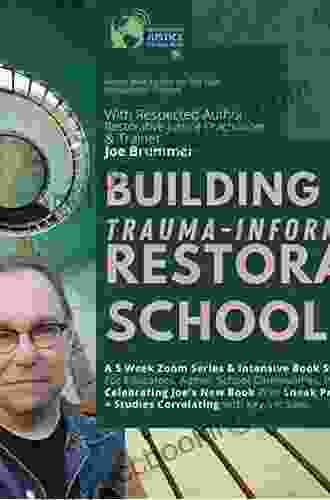Building Trauma-Informed Restorative Schools

A trauma-informed restorative school is a school that understands the impact of trauma on students and staff, and that uses restorative practices to create a safe and supportive environment for all. Restorative practices are a set of principles and practices that focus on building relationships, repairing harm, and restoring peace. They are based on the belief that all people have the capacity to change and that conflict can be an opportunity for growth.
Trauma-informed restorative schools are different from traditional schools in a number of ways. First, they recognize that trauma is a common experience, and that it can have a significant impact on students' learning and behavior. Second, they focus on creating a safe and supportive environment for all students, regardless of their past experiences. Third, they use restorative practices to address conflict and repair harm.
There are many benefits to implementing trauma-informed restorative practices in schools. These benefits include:
4.9 out of 5
| Language | : | English |
| File size | : | 1473 KB |
| Text-to-Speech | : | Enabled |
| Screen Reader | : | Supported |
| Enhanced typesetting | : | Enabled |
| Word Wise | : | Enabled |
| Print length | : | 247 pages |
- Improved student behavior: Trauma-informed restorative schools have been shown to reduce student suspensions, expulsions, and other discipline problems.
- Increased student engagement: Trauma-informed restorative schools create a more positive and supportive learning environment, which leads to increased student engagement.
- Improved academic achievement: Trauma-informed restorative schools have been shown to improve student academic achievement, particularly in math and reading.
- Reduced teacher stress: Trauma-informed restorative schools can help to reduce teacher stress and burnout.
- Improved school climate: Trauma-informed restorative schools create a more positive and supportive school climate for everyone.
Implementing trauma-informed restorative practices in schools requires a commitment from the entire school community. It is important to start by creating a shared understanding of trauma and its impact on students and staff. Once everyone has a basic understanding of trauma, you can begin to develop and implement trauma-informed restorative practices.
There are many different ways to implement trauma-informed restorative practices in schools. Some common strategies include:
- Creating a safe and supportive school environment: This means creating a school where students feel safe and respected. It also means having clear rules and expectations, and providing students with the support they need to succeed.
- Using restorative practices to address conflict: Restorative practices are a set of principles and practices that focus on building relationships, repairing harm, and restoring peace. They can be used to address conflict in a way that is both fair and restorative.
- Providing trauma-informed professional development for staff: It is important for all school staff to have a basic understanding of trauma and its impact on students. Staff should also be trained in how to use trauma-informed restorative practices.
- Partnering with families and community organizations: Families and community organizations can play a vital role in supporting trauma-informed restorative schools. Schools should partner with these organizations to provide students with the support they need to succeed.
Trauma-informed restorative schools are a powerful tool for creating safe and supportive learning environments for all students. By understanding the impact of trauma and using restorative practices to address conflict, schools can help students to heal from their past experiences and reach their full potential.
If you are interested in learning more about trauma-informed restorative schools, I encourage you to read the book "Building Trauma-Informed Restorative Schools" by Jessica Minahan and Beth Dolgoff. This book provides a comprehensive overview of trauma-informed restorative practices, and it offers practical guidance for implementing these practices in schools.
4.9 out of 5
| Language | : | English |
| File size | : | 1473 KB |
| Text-to-Speech | : | Enabled |
| Screen Reader | : | Supported |
| Enhanced typesetting | : | Enabled |
| Word Wise | : | Enabled |
| Print length | : | 247 pages |
Do you want to contribute by writing guest posts on this blog?
Please contact us and send us a resume of previous articles that you have written.
 Book
Book Novel
Novel Page
Page Chapter
Chapter Text
Text Story
Story Genre
Genre Reader
Reader Library
Library Paperback
Paperback E-book
E-book Magazine
Magazine Newspaper
Newspaper Paragraph
Paragraph Sentence
Sentence Bookmark
Bookmark Shelf
Shelf Glossary
Glossary Bibliography
Bibliography Foreword
Foreword Preface
Preface Synopsis
Synopsis Annotation
Annotation Footnote
Footnote Manuscript
Manuscript Scroll
Scroll Codex
Codex Tome
Tome Bestseller
Bestseller Classics
Classics Library card
Library card Narrative
Narrative Biography
Biography Autobiography
Autobiography Memoir
Memoir Reference
Reference Encyclopedia
Encyclopedia Milton Glaser
Milton Glaser Phoebe Damrosch
Phoebe Damrosch Logan James
Logan James Peter Wohlleben
Peter Wohlleben Woody Falgoux
Woody Falgoux Lori Matthews
Lori Matthews Marguerite Bennett
Marguerite Bennett M G King
M G King Louis Borgenicht
Louis Borgenicht Luther Standing Bear
Luther Standing Bear Lorna Jane Harvey
Lorna Jane Harvey Margaret Cardillo
Margaret Cardillo Margaret Mccord
Margaret Mccord Manoah Bowman
Manoah Bowman Neil J Smelser
Neil J Smelser The Total Travel Guide Company
The Total Travel Guide Company Vesta L Giles
Vesta L Giles Vicki Gunvalson
Vicki Gunvalson Lynn Brunelle
Lynn Brunelle Susan H Gray
Susan H Gray
Light bulbAdvertise smarter! Our strategic ad space ensures maximum exposure. Reserve your spot today!
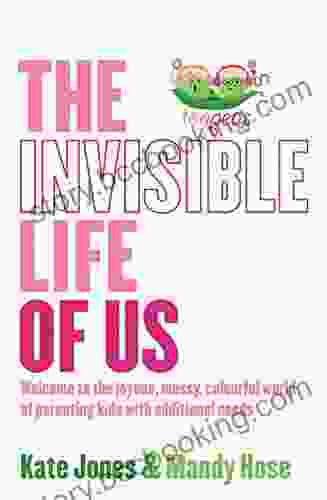
 Chance FosterWelcome To The Joyous Messy Colourful World Of Parenting Kids With Additional
Chance FosterWelcome To The Joyous Messy Colourful World Of Parenting Kids With Additional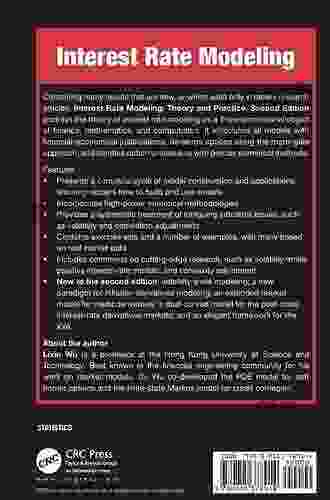
 Dale MitchellUnlock the Power of Financial Mathematics: Introducing Theory and Practice,...
Dale MitchellUnlock the Power of Financial Mathematics: Introducing Theory and Practice,...
 Carter HayesUnveiling the Secrets of Power: A Comprehensive Guide to "The Supreme Ruler...
Carter HayesUnveiling the Secrets of Power: A Comprehensive Guide to "The Supreme Ruler... Chuck MitchellFollow ·6.1k
Chuck MitchellFollow ·6.1k Greg FosterFollow ·10.8k
Greg FosterFollow ·10.8k Gregory WoodsFollow ·8.8k
Gregory WoodsFollow ·8.8k Israel BellFollow ·11.5k
Israel BellFollow ·11.5k Dalton FosterFollow ·5.1k
Dalton FosterFollow ·5.1k Stan WardFollow ·9.7k
Stan WardFollow ·9.7k Diego BlairFollow ·4.4k
Diego BlairFollow ·4.4k Wayne CarterFollow ·16.3k
Wayne CarterFollow ·16.3k
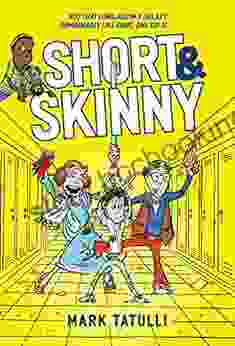
 Truman Capote
Truman CapoteShort, Skinny Mark Tatulli: The Ultimate Guide to a...
Are you tired of being...

 Robert Heinlein
Robert HeinleinEmbark on an Unforgettable Cycling Adventure: The Classic...
Explore the Timeless...

 Bryce Foster
Bryce FosterMisty Twilight: Marguerite Henry's Enduring Masterpiece
A Literary Legacy that...

 Anton Chekhov
Anton ChekhovUnleash the Explosive Power of DC Comics Bombshells 2024...
Prepare yourself for an...
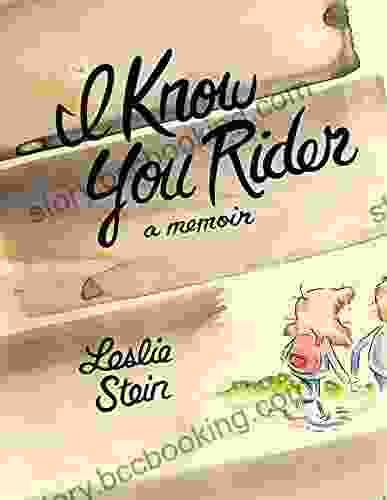
 Juan Butler
Juan ButlerUnleash the Thrill: Discover 'Know Your Rider' by...
Prepare yourself for an...
4.9 out of 5
| Language | : | English |
| File size | : | 1473 KB |
| Text-to-Speech | : | Enabled |
| Screen Reader | : | Supported |
| Enhanced typesetting | : | Enabled |
| Word Wise | : | Enabled |
| Print length | : | 247 pages |


